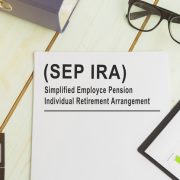Q&A: Self-Directed IRA Investing for Private Stocks
Open a Self-Directed IRA and you open a whole new world of potential retirement investing opportunities. One exciting avenue that Self-Directed IRAs can open up is investing in private stocks. Owning stock in private companies can mean getting in on the ground floor, which creates massive wealth opportunities. But what questions should you answer before you consider a Self-Directed IRA for private stock investing? We’ve got a few—along with their answers.
What Are Self-Directed IRAs?
A Self-Directed IRA is a retirement account that you control. Unlike the traditional approach to IRAs, where your investment choices are typically limited to (public) stocks, bonds, and mutual funds, Self-Directed IRAs empower you to invest in a wide array of alternative assets, including real estate, precious metals, tax liens, and yes, private stocks. This level of autonomy can be a game-changer for savvy investors looking to diversify their portfolios and explore new opportunities.
They’re like any other IRAs, except for how you manage them. In other words, you can have a Self-Directed Roth IRA, or a Self-Directed Traditional IRA. That deserves clearing up, especially since many investors think a Self-Directed IRA is a unique type of account. In fact, self-direction refers to the style with which you manage the account.
How Can I Invest in Private Stocks with a Self-Directed IRA?
Investing in private stocks within a Self-Directed IRA is a straightforward process. First, you establish a Self-Directed IRA with a reputable custodian like American IRA. Once your account is funded, you can identify and evaluate private companies that align with your investment goals. After conducting due diligence, you can direct your IRA to purchase private stock in the chosen company. Your Self-Directed IRA custodian will facilitate the transaction, ensuring all IRS regulations and compliance requirements are met.
What Are the Benefits of Investing in Private Stocks with a Self-Directed IRA?
Private stocks offer several advantages for your retirement portfolio. One key benefit is the potential for substantial returns. Private companies, especially startups and high-growth firms, may experience significant appreciation in their stock value, which can lead to substantial gains within your Self-Directed IRA.
Moreover, investing in private stocks allows you to diversify your retirement holdings beyond the traditional stock market. This diversification can reduce risk by spreading your investments across various asset classes, enhancing the overall stability of your retirement portfolio.
Are There Any Risks to Consider?
Any legitimate investment will always have certain risks. Investing in private stocks can be even be riskier than traditional investments. Private companies may not be as transparent as publicly traded ones, making it crucial to conduct thorough due diligence before investing. Additionally, your investments must comply with IRS regulations to maintain the tax-advantaged status of your Self-Directed IRA. However, if you have a high risk tolerance, it may be the right option for you.
How Does One Get Started?
If you’re intrigued by the potential of Self-Directed IRAs for private stock investing, the first step is to reach out to a Self-Directed IRA custodian like American IRA. We can help you better understand the paperwork and administration necessary to get the account started. But don’t worry; it’s simpler than it sounds, especially having a Self-Directed IRA administration firm in your corner.
Self-Directed IRAs open up all sorts of possibilities for investors looking to diversify their retirement portfolios, which includes investing in private stocks. While these accounts offer numerous benefits, they also come with responsibilities and risks that require careful consideration. To learn more about how Self-Directed IRAs can work for you, contact American IRA at 866-7500-IRA and see if it’s time for you to open a Self-Directed IRA of your own.








